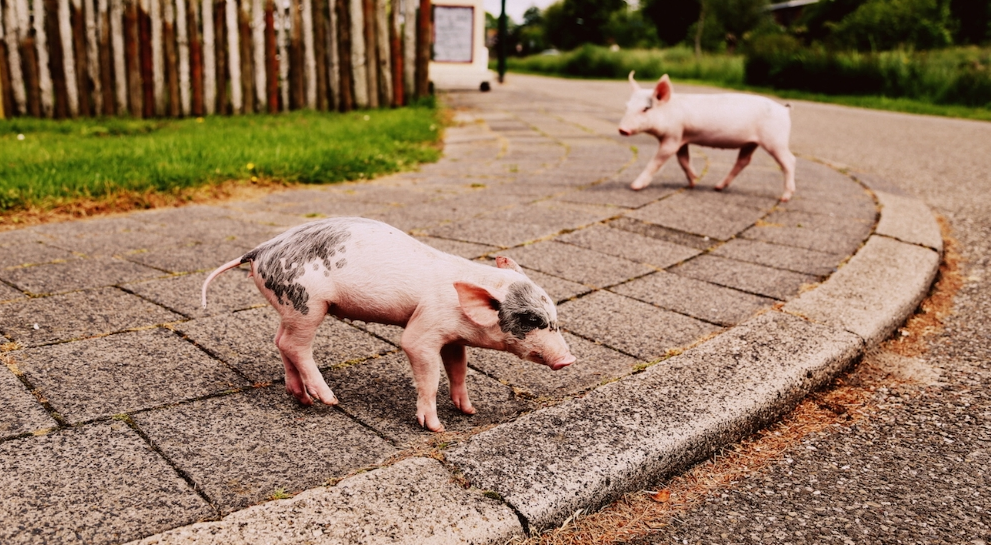Gerard Zwensloot, a butcher in the Netherlands, takes his pigs for a walk before he slaughters them. Sound unusual?
That’s because it is. In fact, he’s been accused of animal cruelty–people have become so used to the idea that meat comes from supermarkets, and so distanced from the fact that meat is made out of real animals, that Zwensloot gets flack for butchering animals that he’s named. But, as Zwensloot asks, which is more cruel–keeping pigs in tight confinement, drowning in antibiotics and feces, or slaughtering them after they’ve led a healthy, happy life? It certainly says something about our food system that we are more bothered by knowing the animal we’re going to eat than we are by eating animals raised and slaughtered in inhumane conditions.
As you probably know by now, the developed world has a meat problem. The (already high) demand for meat is rising across the globe, and factory farms are proliferating, bringing with them a host of problems ranging from animal cruelty and antibiotic overuse to environmental threats like pollution, methane emissions, and sky-high water use.
But it’s not realistic to assume that everyone on the planet will stop eating meat. And even if they would, some sustainably-produced meat is actually essential for maintaining ecosystems (for instance, holistic grazing methods have been shown to revive desertified grasslands).
So what can you do? The answer is relatively simple for such a complex problem:
Eat less meat. Use the savings to buy meat that you know has been raised sustainably. Think of that meat as the luxury it is.
Creating a market for sustainable, ethical meat–and eradicating the market for factory-farmed meat– promotes holistic, environmentally friendly techniques, and supports the farmers and producers who are doing the right thing. So help them out by reducing your meat intake–and using the money you’ve saved to purchase better meat.







